Doctors' society misrepresents Canada COVID vaccine guidance
Society of Obstetricians and Gynaecologists fails to disclose government vaccine advocacy funding and Pfizer partnership
On May 27th, Health and Human Services Secretary Robert F. Kennedy Jr. announced that the COVID-19 vaccine would no longer be recommended for healthy children and pregnant women in the United States.
The very next day, a story appeared simultaneously across all major Canadian news networks, including CTV News, the Toronto Star, and The Globe and Mail, insisting that “COVID-19 vaccination ‘remains safe and strongly recommended’ during pregnancy and while breastfeeding.”
Originating from The Canadian Press, the story was a coordinated effort to amplify a statement issued by the Society of Obstetricians and Gynaecologists of Canada (SOGC), an Ottawa-based not-for-profit organization. Citing “an age of growing misinformation and disinformation,” the SOGC declared that “[w]omen and health care providers should continue to rely on trusted science-based organizations like the SOGC for current and accurate guidance on vaccination during pregnancy.”
The Canadian Press article included added commentary from maternal fetal medicine specialist and SOGC member Darine El-Chaâr, who said “pregnant women remain a priority population for COVID vaccination in Canada.”
Given the timing of the SOGC’s position statement and accompanying media blast — and the explicit acknowledgement that it was put out “[i]n light of the recent change in the United States’ recommendation” — readers are surely intended to conclude that Canada’s regulatory authorities currently strongly recommend that pregnant women take the shot.
Here’s the problem: it’s not true.
COVID-19 vaccine regulation
For context, COVID-19 vaccines are a pharmaceutical product regulated by Health Canada. Originally authorized under an Interim Order, the vaccine products currently on the market have all received authorization for marketing and distribution under the Food and Drugs Act.
Once such approval is received, a separate federal body is tapped to develop recommendations for their use in Canada: the National Advisory Committee on Immunization (NACI). These recommendations are then collected into guidelines and published in the Canadian Immunization Guide (CIG).
While the current CIG includes a general statement that “[w]omen and individuals who are pregnant or breastfeeding are recommended to be vaccinated,” it also provides a number of caveats.
“Pregnant women and pregnant individuals are not included in the list of higher risk individuals for whom two doses of COVID-19 vaccine per year are recommended,” it reads, noting that “pregnancy is an indication for an annual dose of COVID-19 vaccine” — the same general recommendation given for “most previously vaccinated individuals.”
Put simply, Canada’s current position is far from a strong recommendation, especially as compared to recommendations from years’ past. And pregnant women are distinctly not considered “a priority population” for COVID-19 vaccination, as Dr. El-Chaâr appears to incorrectly claim.
Notably, the CIG warns that “[p]regnant or breastfeeding individuals were excluded from COVID-19 vaccine clinical trials,” meaning the safety and efficacy of the novel genetic vaccine candidates was never tested before being deployed into that population.
Indeed, a study published in the journal Womens Health Issues found that of the 90 vaccine trials the researchers reviewed, “88 (97.8%) excluded pregnant individuals.” The authors warned that “[w]ithout evidence-based data, these individuals are forced to make medical decisions affecting both themselves and their fetus while lacking the clear recommendations that most of the population has.”
To fill these data gaps, the CIG encourages women who received a COVID-19 vaccine during pregnancy “to enrol in a COVID-19 vaccine pregnancy registry.” In other words, using pregnant women as real-time guinea pigs, outside of the safeguards of a formal clinical trial.
Clarifying the new U.S. policy
And as it turns out, Secretary Kennedy’s “dangerous new COVID vaccine rules” actually appear to bring American policy closer in line with current Canadian recommendations.
PBS News reported late last week that the updated guidance on the Centers for Disease Control and Prevention (CDC)’s website removed pregnant women from “the routine recommendation made for other adults,” with an agency spokesperson clarifying that the vaccines are still available for any pregnant women who wants them via their healthcare provider.
Thus, a reasonable summation of the current state of public health guidance is that in both Canada and the United States, pregnant women who want a COVID-19 vaccine or booster can receive one by speaking with their doctor. The only real change is that federal public health authorities are no longer pushing pregnant women to take the experimental shot.
Not directly, anyway.
Federal funding to “promote acceptance and uptake of COVID-19 vaccines”
Equally problematic is that the Society of Obstetricians and Gynaecologists of Canada failed to disclose the (greater than) $1 million it has received from the Government of Canada for the express purpose of selling vaccines to pregnant women — including COVID-19 vaccines.
In January 2017, the Society kicked off a multi-year project titled “Improving Immunization Rates Among Pregnant Women in Canada: Working with care providers and the public,” supported by a $733,091 grant from the Public Health Agency of Canada’s Immunization Partnership Fund (IPF).
The IPF grant was subsequently updated and repurposed to “promote acceptance and uptake of COVID-19 vaccines,” earning the Society a total of $1,052,726 for this project alone.
Importantly, the Society plays no formal role in Canada’s regulatory framework in regard to COVID-19 vaccines — something which is likely to be lost on the layperson reading one of the many articles resulting from its statement.
It has, however, served for many years as a mouthpiece for the government’s public health policies. A review of Canada’s public funding database reveals that the Society has directly received over $7.2 million in federal grants since 2015, with an additional $180.7 million for five projects on which the Society is listed as a partner.
Among these is nearly $1.5 million in “core funding” from Health Canada, spanning December 2018 through March 2022, plus an additional $2.6 million to help the government “maintain a strong and effective publicly funded health care system.” Additionally, the Public Health Agency of Canada has provided the Society over $800,000 across multiple grants to “contribute to the prevention, control and reduction of the spread of infectious disease among Canadians.”
Pfizer partnership and lack of transparency
Also notably absent from the Society’s statement was disclosure of its relationship with the companies behind the COVID-19 vaccine products.
Indeed, on August 14, 2020, the Society announced in a Facebook post that it had signed “a new partnership with Pfizer Canada,” through which the pharmaceutical giant would “help support and build resource materials and new educational initiatives for SOGC’s members and the public throughout the pandemic.”
Unfortunately, the Society has a documented history of lacking transparency around its financial ties to the pharmaceutical industry. The Toronto Star reported in 2015 that the Society refused to disclose how much money it had received from Duchesnay, after the Society advocated for the use of the company’s morning sickness drug, Diclectin.
This lack of transparency continues to this day, with no clear information on the Society’s website about its corporate sponsorships. The same goes for the Canadian Foundation for Women’s Health (CFWH), the Society’s sister organization through which it raises funds.
However, an archived version of the CFWH website reveal that it once proudly boasted corporate sponsorships from the likes of Pfizer, Janssen, Eli Lilly, Merck and Novartis.
In a time when Canadians and Americans alike are increasingly skeptical of the public health establishment, one wonders if the Society of Obstetricians and Gynaecologists of Canada has just provided one more reason to be distrustful.



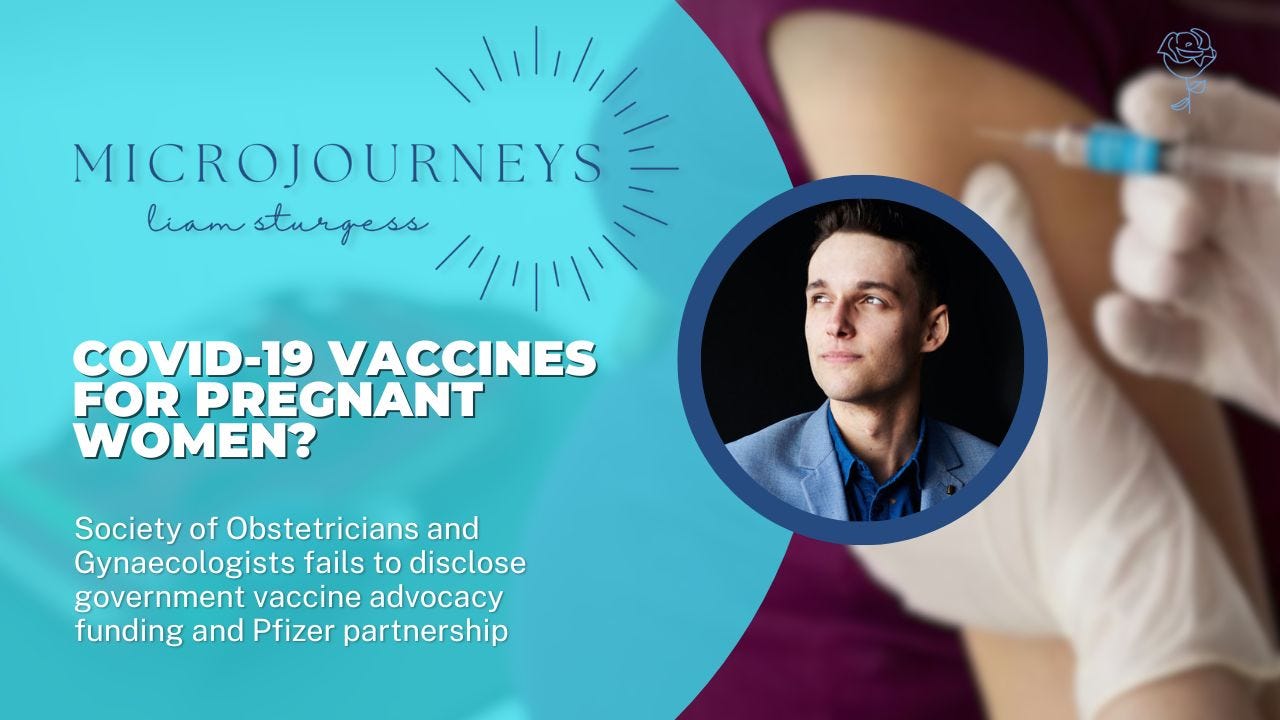
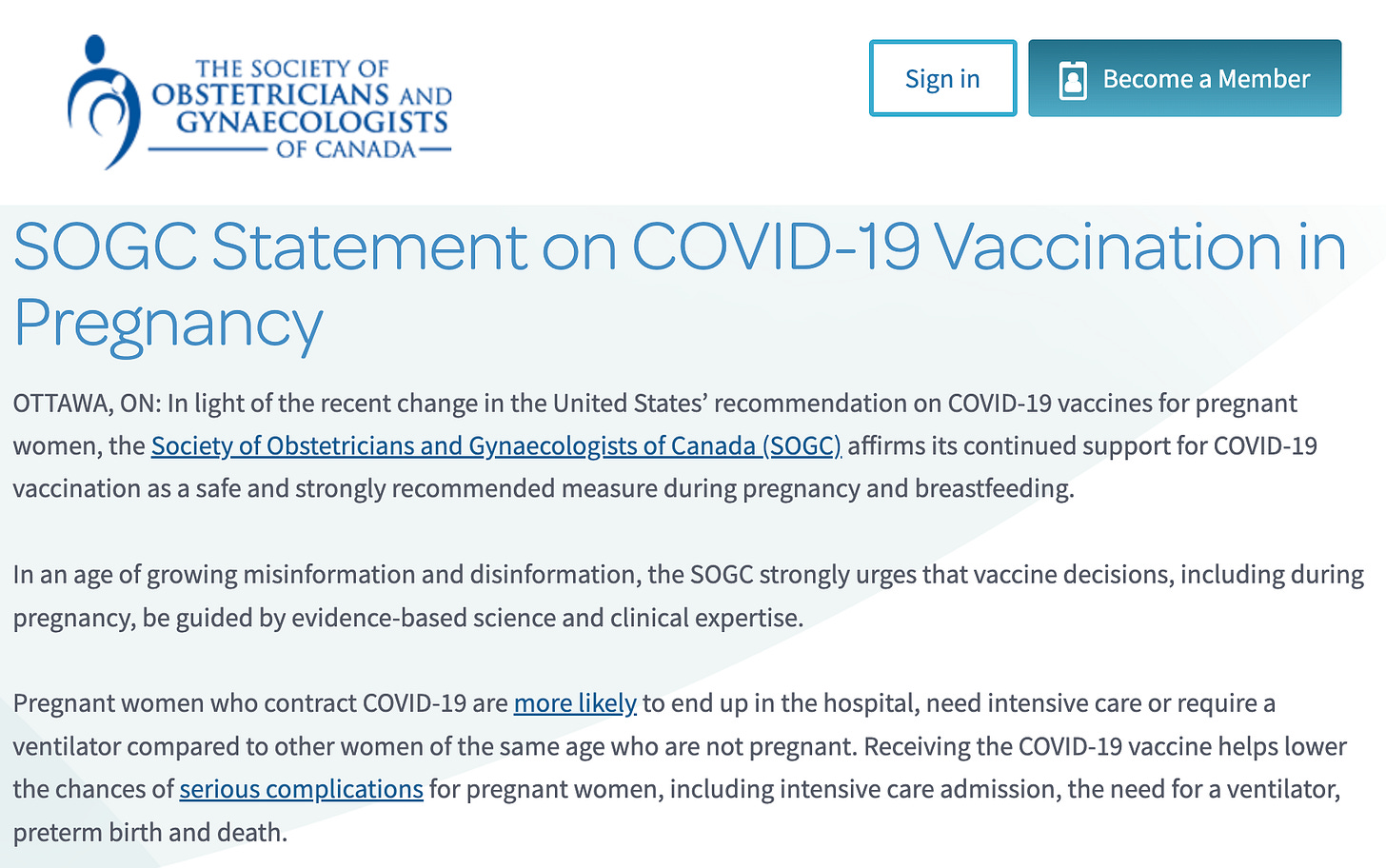

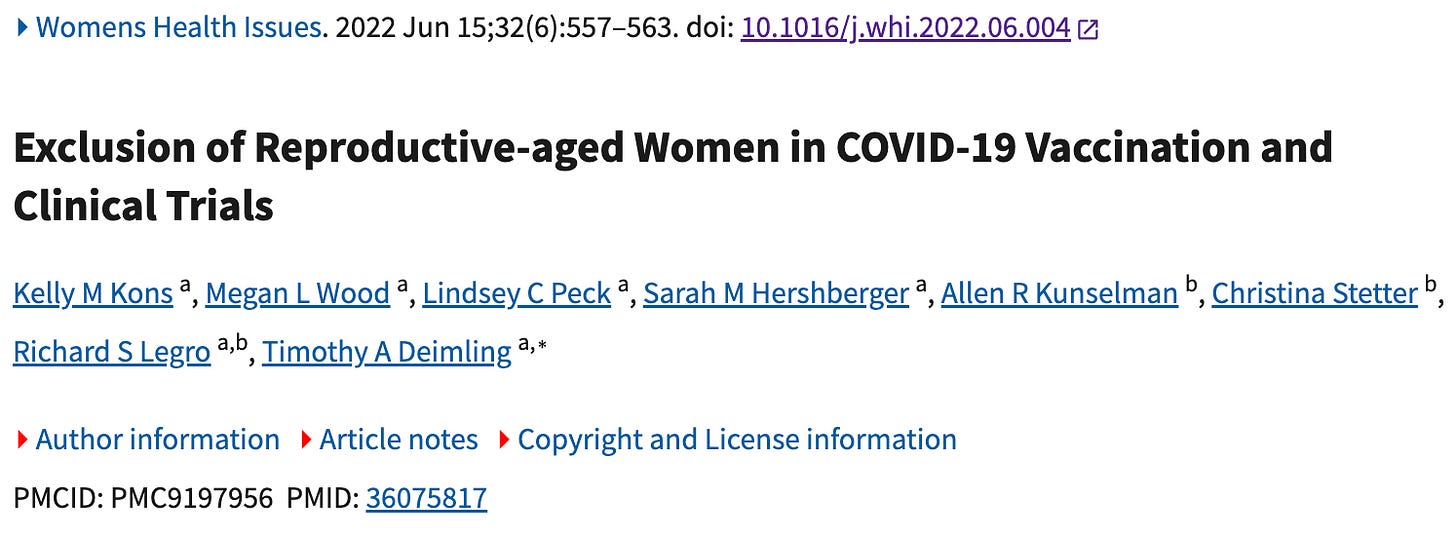
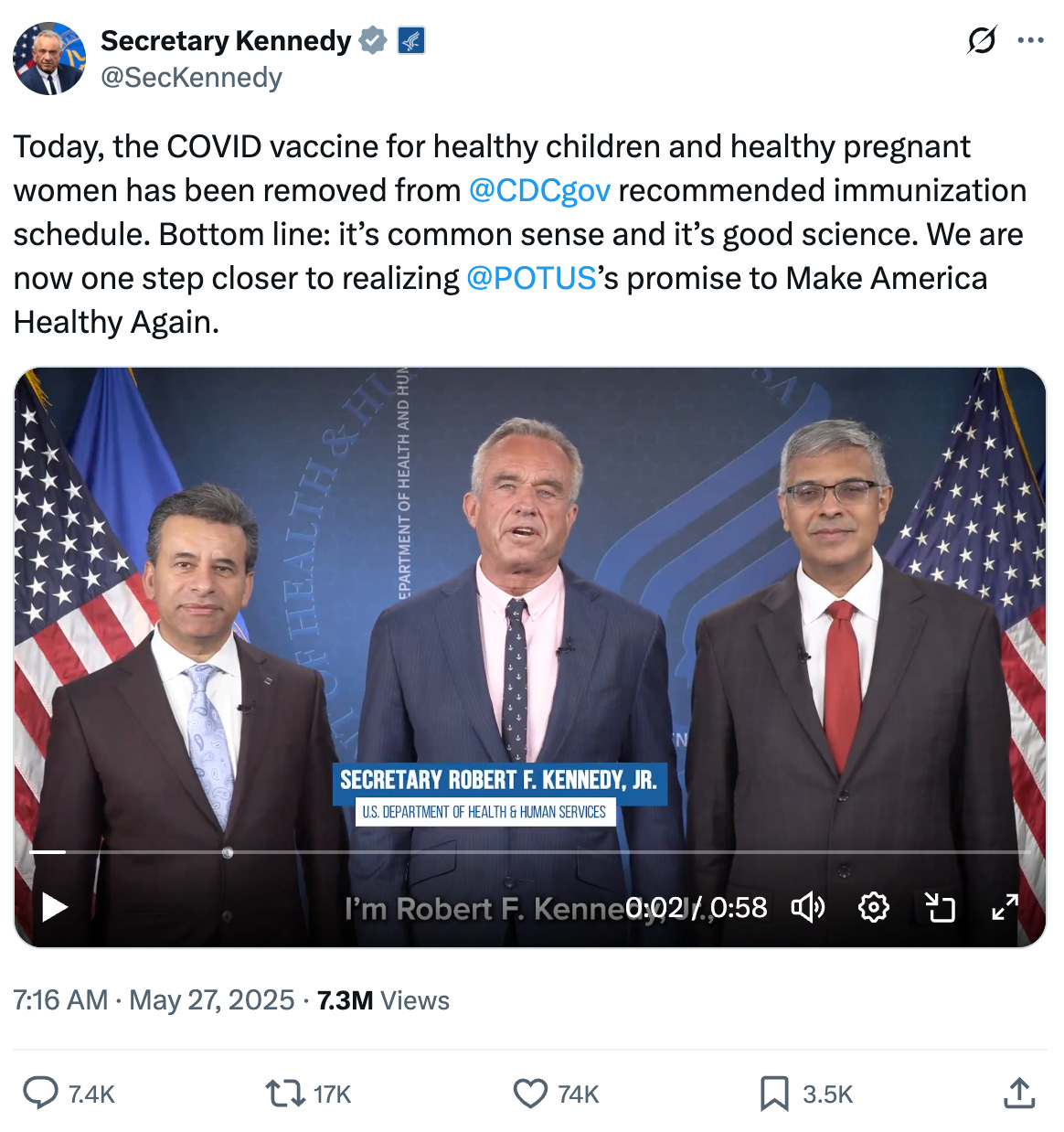


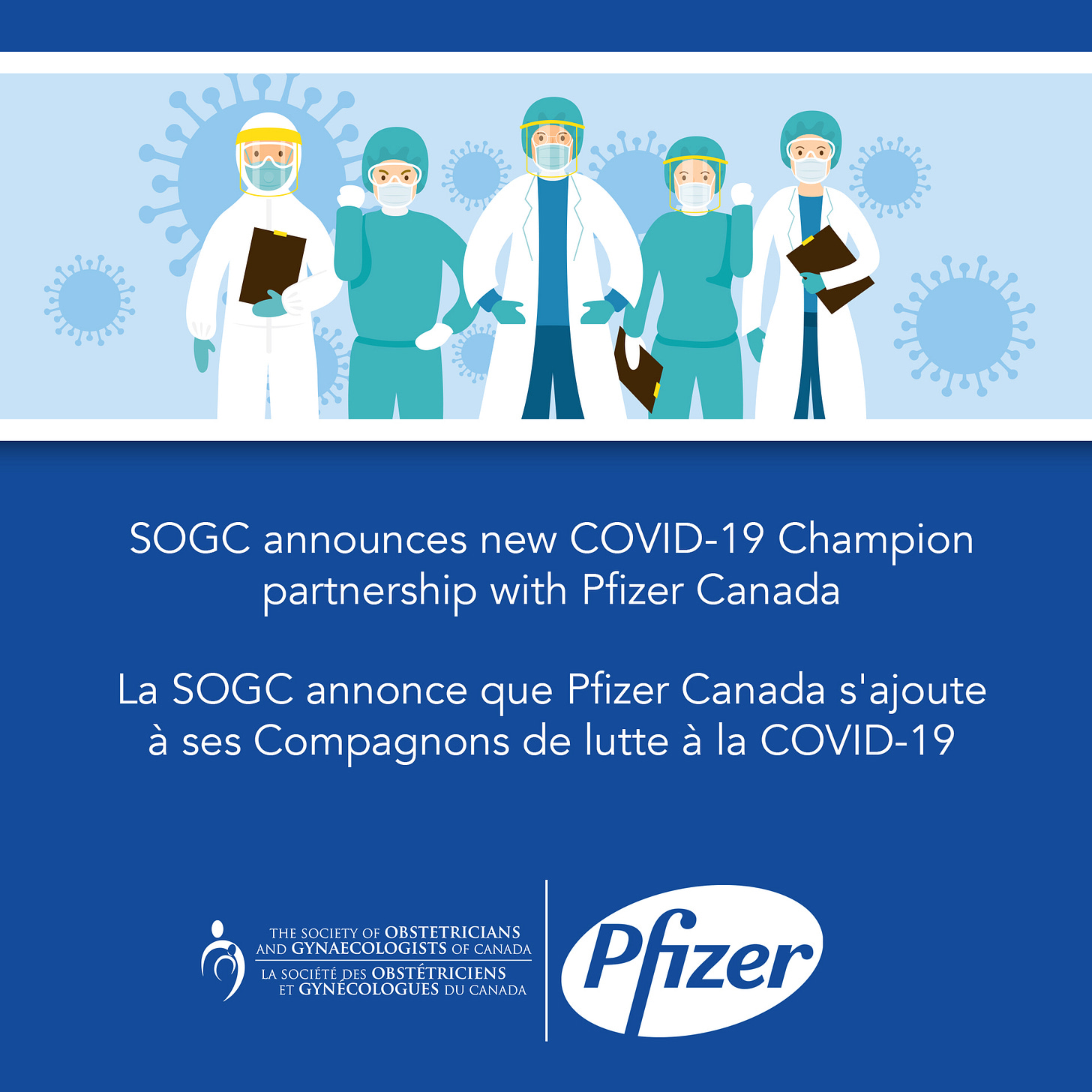
Great reporting Liam. Always read the actual HC label and the actual data and reasoning from NACI. Very different from SOGC and then you need to ask why